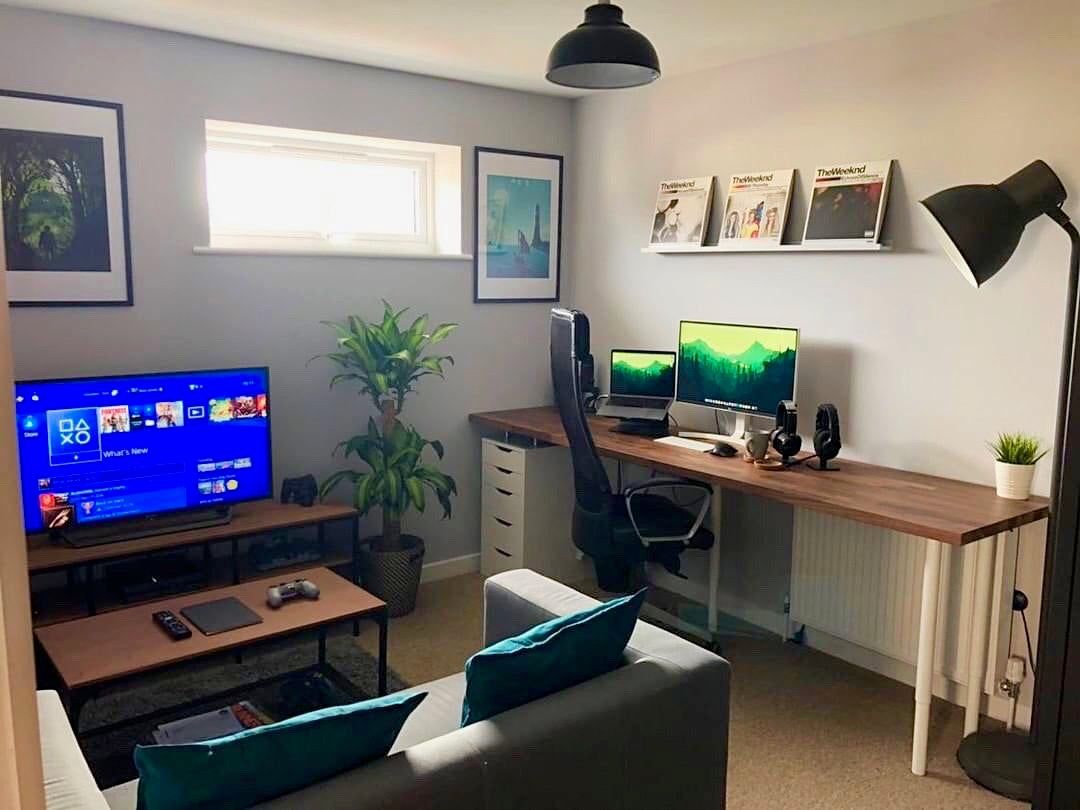Not everyone takes to working from home straight away. It can be quite the adjustment to no longer have water cooler chats with your colleagues, or have that commute to work to prepare yourself for the day. However, with a few small changes around the house and within yourself, you’ll be in a better position to handle this new way of life.
Opt for a Serviced Office
High lease costs may have stopped you from working in a traditional office space, but that doesn’t mean you can’t work in an office at all. Many non-traditional options may serve your needs well, such as a serviced office.
This type of office has a single monthly cost but provides you access to everything you need for daily operations, like reception services, the internet, and even furniture. Not everyone can hack the home offices, so a serviced office in a major city like Washington DC can be a cost-effective alternative.
Lay Down Some Rules
While it can be convenient to work from home, it can also be frustrating if you have children or housemates. While you love them to bits, they don’t always understand the importance of being quiet when you’re on a conference call or not interrupting you during an important meeting.
If you’re fighting a losing battle, it’s time to lay down some ground rules. Put signs on your door that signal when it’s okay to come in and when it’s not. Before long, your family or housemates will come to understand your routine.
Invest in Ergonomic Equipment
When you work in a traditional office space, most business managers ensure your workstation is set up for comfort and ergonomics. However, you likely won’t have this luxury at your home office. Rather than work with a chair and desk that may not be doing your body any good, invest in furniture that you can adjust to meet your needs.
Remember, your computer screen should always be at arm’s length from your face, and your knees should be level with your hips on your chair. It’s also essential to have your wrists straight and your hands at elbow level.
Set Up a Dedicated Space
Working at your kitchen bench can be okay for a while, but it may not serve you well as a permanent arrangement. If you’ll be working from home for some time, set up a dedicated area that gets you into the work zone. Also, keep in mind having a way to protect your data on the computer in the case of a blackout you need a backup power supply. This is a dedicated power supply that’s charged all the time and when something knocks out the power you’re still in the game!

A quiet, private spot with a desk, chair, and everything you need to do your job can serve you well. Ensure this space is free of distractions and has as little clutter as possible. If you struggle with noise, consider investing in a white noise machine to block it out.
Take Breaks
Given that you no longer have a commute to the office, it’s easy to get into the habit of working every waking hour. If an email comes through during the evening, it’s convenient to be able to pop to your desk and carry out the requested task. However, this is a surefire way to earn yourself a bad case of burnout.
Stick to a schedule of standard hours if that’s what it takes to prevent you from overworking. Also, remember to take breaks throughout the day so you can establish a healthy work-life balance.
Working from home or with few in-person staff is going to be more common from this moment forward. It can take some time to adjust, but it’s possible to do so. Lay down rules for your family members, set up a dedicated space in your house, or consider opting for a serviced office to get you out of the house.






